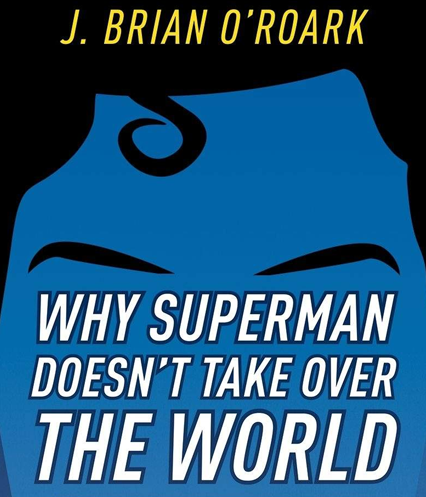Expert Advice: How To Watch Superhero Movies Like an Economist
Professor J. Brian O’Roark shares tips from his new book about the economic principles behind superhero stories.

In the world of movies, superheroes are at the top of the mountain. Five of the top ten movies in terms of gross receipts are superhero flicks. While the money earned tells us superhero films are an economic marvel, the screenplays provide economics of another kind. If you want to get a little more out of these stories of derring-do, watch them like an economist. Here’s how:
- Superheroes, like economics, are motivated by scarcity. Some heroes like Captain America and Deadpool face physical limitations. To overcome these, they take part in science experiments that yield their superpowers. Once you become a hero, despite all your powers, there are still limits on what you can accomplish. Pay attention to what it is that prevents a superhero from saving the day. That’s sure to come up later in the movie. Tony Stark might have saved himself with the arc reactor (that gadget that keeps his heart going), but inevitably that's going to go bad and he's going to need someone to save him.
- Big challenges call for economies of scale. You can tell how serious a problem a hero is facing by the size of their posse. Wonder Woman, Superman, and the early iterations of Marvel movies show heroes who can get the job done on their own. When the threats become more serious, we see hero teams form. The Avengers and the Justice League exist because you need a little help from your friends to stave off alien domination.
- Bad incentives lead to bad outcomes. Super villains are people too, but what drives them? Since the hero can’t — or won’t — kill the nemesis, and the jails are pathetically inept at detention, the actions of the wicked are more over-the-top than what we see in other stories. That makes the villains incredibly memorable, but it is immensely logical. Incentives are not set up properly to deter crime, so why not keep trying? Feel bad for the bad guy, but not too bad.
- Peculiarities are at the root of actions. Why does Batman fight Superman? Why is Peter Parker so careful about protecting his identity? Why has the Black Panther kept Wakanda hidden? Most of the bizarre scenarios in superhero movies can be explained with economic logic. Fighting among the good guys is a game theory problem. Keeping your identity secret is because of the huge opportunity costs of letting the world know who you are. Wakanda's secrecy has allowed it to experience economic growth while its neighbors succumbed to slavery, war, and poverty.
J. Brian O’Roark is a university professor of economics at RMU. He recently spoke at the Smithsonian and on NPR about his new book, Why Superman Doesn't Take Over The World: What Superheroes Can Tell Us About Economics.
